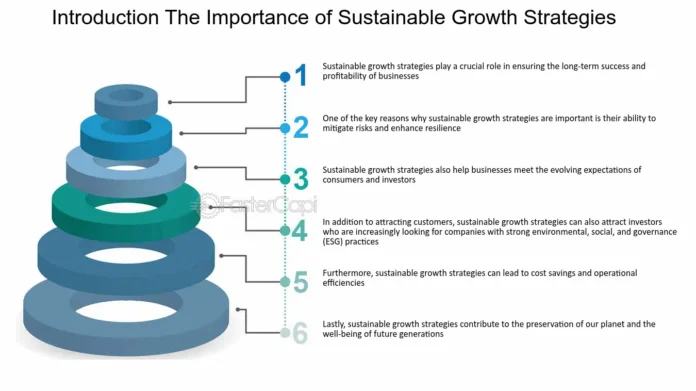As the field of therapy continues to evolve, professionals seek ways to sustain and grow their practices while prioritizing ethical considerations. Implementing sustainable practices not only enhances a therapist’s business viability but also supports the well-being of clients and communities. Therapists who focus on sustainable growth can create a lasting impact while navigating the complexities of their work.
Sustainable Practice Growth for Therapists requires a blend of innovative strategies and adherence to core values. Practitioners can explore various avenues such as integrating eco-friendly practices, embracing technology for efficient communication, and promoting mental health awareness. These approaches not only benefit the environment and society but also attract clients who value sustainability.
In an increasingly competitive landscape, therapists must differentiate themselves through meaningful practices. By aligning their services with sustainable principles, they can cultivate a loyal client base and inspire change within their communities. The journey toward sustainable practice growth is not just a responsibility; it is an opportunity for therapists to lead by example.
Foundations of Sustainable Practice
Sustainable practice for therapists hinges on a clear definition of growth and the adoption of effective business models. Understanding these foundations enables therapists to cultivate a practice that is resilient and aligned with their values.
Defining Sustainable Growth
Sustainable growth refers to the ability of a therapy practice to expand while maintaining its core values and ensuring long-term viability. This involves balancing client acquisition with quality care, ensuring that growth does not compromise service standards.
It is critical to assess the practice’s capacity—both in terms of staffing and resources. Growth can be measured through various metrics, including client retention rates, revenue per session, and the practice’s community impact. Attention must also be paid to staff well-being, as a healthy workplace contributes to sustainable outcomes.
Essential Business Models for Therapists
Successful therapists often adopt specific business models that support sustainable growth. Fee-for-service is a traditional approach but can be complemented with subscription models that provide clients with ongoing access and support.
Another model is the group practice, which allows for collaboration among therapists, sharing costs, and broadening service offerings. Integrating technology, like teletherapy, expands reach while maintaining flexibility.
Workshops and community initiatives can also serve as revenue streams, fostering deeper relationships with clients. As therapists evaluate these models, they should prioritize alignment with their values and client needs to ensure longevity.
Strategies for Growth
To foster sustainable practice growth, therapists can implement several targeted approaches. Key strategies include developing a strong referral network, utilizing technology for efficient practice management, and expanding service offerings.
Building a Strong Referral Network
A robust referral network is essential for attracting new clients. Therapists can connect with professionals in related fields, such as physicians and social workers, to establish referral relationships.
- Attend Networking Events: Engaging in community events or professional conferences can build visibility and facilitate connections.
- Collaborate with Other Therapists: Partnering with peers for mutual referrals can enhance support and shared insights.
- Maintain Communication: Regular check-ins with referring partners nurture relationships and encourage continued referrals.
By actively cultivating these connections, therapists can establish a steady stream of potential clients.
Leveraging Technology for Practice Management
Technology can significantly enhance the efficiency of a therapy practice. Implementing practice management software helps streamline various administrative tasks.
- Client Scheduling: Online scheduling tools can reduce no-shows and save time.
- Telehealth Services: Offering remote consultations can expand a therapist’s reach and accommodate client preferences.
- Secure Record Keeping: Digital management systems allow safe storage of client information while ensuring compliance with privacy regulations.
These tools provide both convenience and efficiency, allowing therapists to focus more on client care.
Expanding Services and Specializations
Diversifying services can attract a broader clientele. Therapists might consider specialized training or certification to offer additional modalities.
- Workshops and Group Therapy: Hosting workshops can engage existing clients and draw in new ones.
- Specialized Niches: Pursuing niches, such as family therapy or trauma-informed care, can differentiate a practice.
- Continuous Education: Keeping skills current through ongoing training ensures therapists remain relevant and meet emerging client needs.
By broadening expertise, therapists can not only enhance client satisfaction but also increase revenue opportunities.

